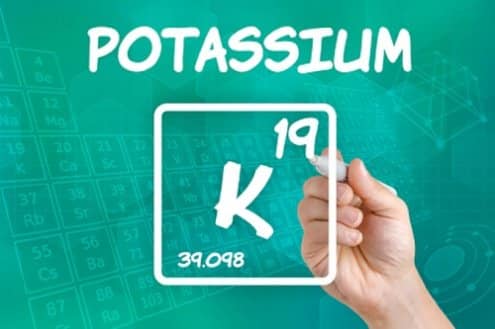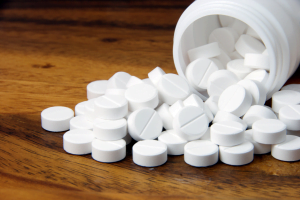What is insulin?
Insulin is a natural occurring hormone that is produced by beta cells in the pancreas. This hormone works by helping the body absorb glucose, potassium and other nutrients from the bloodstream. Glucose is a form of sugar which is one of the biggest sources of fuel. Insulin encourages the liver to store glucose in the form of glycogen for future use. In addition, insulin enhances the permeability of body cells to other nutrients such as potassium. Therefore, the presence of insulin encourages the body cells to take in glucose from the bloodstream in addition to potassium, phosphate and magnesium.
The effect of insulin on potassium is more important clinically. This is because insulin activates sodium potassium ATPases in most body cells, which may lead to increase in absorption of potassium by the cells.
What is potassium?
Potassium is a mineral and electrolyte which helps to keep your body fluids at an appropriate level. Potassium is an important nutrient for your muscles, heart and nerves. Potassium is responsible for keeping water inside the cells so that they don’t get dehydrated. With the right level of fluid, your body can make sure your heart is beating correctly and your brain is functioning properly. If your body does not maintain proper levels of potassium, you may experience symptoms such as muscle cramps and seizures. You may suffer from low potassium level (hypokalemia) or high potassium level (hyperkalemia).
Usually, the kidney works by excreting excess potassium from the body. It is recommended that you take 4.7 gms of potassium every day. However, even if you are consuming the right amount of potassium, you may still experience high or low levels of potassium. The healthy range of potassium is between 3.6 and 5.2 mmol/L. In case the potassium level is above 5.5 mmol/L, it is considered to be life-threatening.
Possible causes of fluctuating potassium levels include:
- Kidney problem
- Frequent urination
- Vomiting
- Using specific medications like insulin drugs
- Changes in hormonal levels
A scientific study showed that people who took thiazides to treat high blood pressure experienced a loss of electrolytes like potassium. The research showed that loss of potassium could increase the risk of having diabetes. In case you feel like you are at risk of having diabetes or have a deficiency in potassium, you should visit your doctor. Your doctor may perform blood tests to check if your potassium levels are abnormal. In case the range of your potassium level is not normal, your doctor may recommend a change in your diet or prescribe supplements.
Why does insulin cause low potassium?
Insulin is a hormone which helps to keep potassium levels in the body within the healthy range. When you eat food that is rich in potassium such as fish, the potassium will enter the bloodstream. This will lead to an increase in potassium levels, which stimulates the beta cells to produce the natural hormone insulin. Insulin works by helping potassium get absorbed into the body cells so that it doesn’t build up in the bloodstream. In case there is not enough insulin in the body, potassium levels will rise to abnormal levels. When this happens, your body will produce more insulin to help lower high potassium levels. Patients with diabetes usually have high levels of potassium in their body. People with type 1 diabetes can no longer produce insulin. This is because the insulin producing beta cells has been damaged by the immune system. Without insulin, potassium cannot enter the cells which leads to a build up of potassium in the bloodstream. This leads to high levels of potassium levels in patients with type 1 diabetes, which, if not treated can lead to severe hyperkalemia.
—





